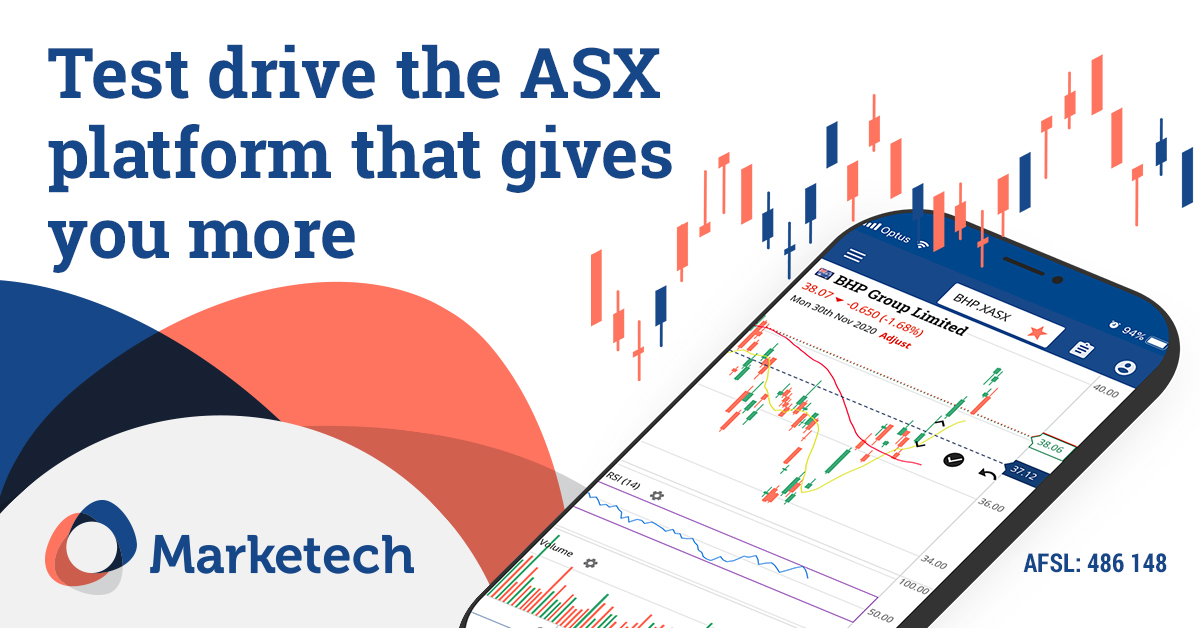Trading with Focus – Time to call bullsh*t on it all

Pic: metamorworks / iStock / Getty Images Plus via Getty Images
A couple of months ago I had to get an Uber to work. It was 6.30am (because I work stupid long hours), and to be brutally honest, I was a little dusty. Something about lunchtime strategy meetings on a Thursday can do that.
Anyway, the sun is just starting to come up. We roll to the end of my street, and I say something non-committal to keep my Uber star-rating above 4, like “Oh, the sun’s coming up.”
I know, quality banter right?
So my new most favourite person in the world (let’s call him Hans, probably not his real name, wasn’t paying that much attention, still a bit dusty) pauses, and without the merest hint of sarcasm says “Sunrise. Pfft. That’s bullshit.”
Seriously, it’s 6.30am Hans, you really want to throw down on the existence of sunrise? So obviously my response was “Hans, it’s ALL bullshit…but please, go on”.
So Hans goes into this extended explanation about how the sun and the moon aren’t real, and how the space thing is all fake and ‘they’ are lying to us, and he has a blog where I could read about it all (obviously) and how can gravity possibly be a thing because some guy discovered it 100s of years ago with an apple when the world is supposed to be spinning and everything else that was found that long ago by sciencemen has been disproven.
I loved every second of it – move over Alan Jones! It was refreshing to know that there are more arrows in the conspiracy enthusiasts’ quiver. The vax and mask/control thing is getting a little worn.
Now I couldn’t care less if space is real or if we are only held to the Earth with magnets (as long as they continue their good work, I’ll keep my iron levels right), so let’s go through my Top 5 list as I call out BS in the wild world of share trading.
The amount of paper in my mailbox is too damn high!
Seriously, I think I’m going to write to my local MP about this one. The ASX said they were going to do something about it, but now it’s delayed again! I’m not even sure why we still have physical mailboxes, anything I find in it is rarely welcome.
Growing wood for paper creates a lot of jobs and I don’t want to take away from that, then there’s the people who work in the printing businesses, but it feels like the 103 tonnes of paper* created annually (and immediately binned) by sending me another reminder of the bad trades I have made, which serves no obvious purpose whatsoever, and adds costs* to the already expensive job of being listed on the stockmarket could be done by email…
* (”ASX charges companies $1.25 for every “CHESS holding statement” sent out to investors, who receive them even if they quickly sell shares bought. Many investors put them straight in the bin. ASX sent out 19.2 million paper statements over the year to June, a rise of 34 per cent, as trading surged during COVID-19. The statements used 103 tonnes of paper in the past year. Revenue from sending the statements accounted for almost 40 per cent of the ASX’s “issuer services” revenue of $61.2 million in the past financial year. ASX also incurs costs producing and posting the documents.”)
Hmm. Could be a Lumberjack and Printers’ Union/Australia Post/ASX conspiracy. Hans? Make a note, this is blog-worthy!
Making advice too expensive
Yeah, so this is a sticky one. Let me oversimplify it and see how many people I can annoy! (No legal threats please, this is just for the lols.)
So…once upon a time, the whole stockbroking world was ‘buyer beware’. You’d ring some blue-blood, dapper ‘fellow of the silver-spoon’, probably wearing the pinstripes and top hat, to buy what you wanted to buy (or sell what you wanted to sell). He’d quote you the number he has on the latest piece of ticker-tape, (or, most likely, yesterday’s price from the paper) then you’d have 10 days to mail in a cheque. Keep in mind that it really wasn’t that long ago that inside information was just called ‘due diligence’.
So then people started asking this guy “waddyareckon?”, a guy who’s only real job was to place the order in the market for you, and it was your job to decide on whether to trust this guy you barely knew the name of.
Somewhere along the line some people got blown up by a few bad eggs and it became illegal to guarantee returns (unless you’re actually going to guarantee them). That seems fair enough. Then some more bad eggs cracked and it became illegal to not ‘Know Your Client’. Well, that also seems fair enough… And it was also made illegal to recommend investments that were not within a client’s risk profile or that met with their ‘future objectives’. Starting to get heavy.
Who decides what makes a suitable investment? Well, that’s why a broking firm offering advice has to hire a team to choose an ‘Approved Products List’ and ‘Model Portfolios’ and ‘Risk Analyses’ and a team to look after your broker’s compliance with the rules and set up Chinese walls and whatnot.
Your broker then has to wade through layers upon layers of paperwork each time they talk to you, do Annual Reviews to make sure your circumstances haven’t changed and if they don’t do this they get a whopping great fine from ASIC. With no court of appeal, and even if you, the client, are actually really happy with the outcomes! So they also have to have insurance to cover it, and that ain’t cheap. Plus there’s the high levels of training and continual education, all of these add to the costs and risks of providing advice.
So all in all, brokers these days aren’t likely to take on small clients, and even if they did, they probably wouldn’t be recommending that you buy direct shares as they are too high risk for people with small amounts of money, and its near impossible to correctly diversify the investments of someone with under $100k through direct share ownership.
But is it too much legislation? House-brokers are allowed to sell a property to people who can’t really afford it whilst interest rates are at historical lows, wax lyrical about the quality of the neighbourhood or its future growth potential, remark positively about the longevity of the DDT termite treatment and the upshot of being that close to a major airport, highlight the suitability of a 2-storey home for people with three toddlers and a Great Dane where the only bathroom is on the second floor and there’s no backyard. And you can gear a house up to 90% of its value!
There’s no financial training in schools, and many of the people that are financially locked out of advice are the ones that need it the most.
So now we have a whole wave of people that cannot afford the advice they need, and a whole lot of advisers who wouldn’t take them on for fear of being nailed to the wall for doing the thing the client wants them to do! So instead new investors are forced to rely on the most degenerate, morally bankrupt, end-of-days-foretelling phenomenon for their information on how to invest…

Social media
Jeez. Is this what we’ve stooped to now? Surely it was obvious when the Kardashians started getting to billionaire status that this was a cancer, but now every major newspaper prints tweets as if they are news.
Now it seems like it’s becoming accepted as a valid source of free advice, with no way of controlling it from driving all of the least financially literate investors off the same cliff. If just one of these meme stocks goes into a trading halt and never comes out there will be a lot of finger pointing.
Tiktok, Twitter, Facebook, Reddit… the list seems to grow each month. Highlighting stocks that have already done exceedingly well as if that is the reason to buy them, bagging out anyone that disagrees, moving in herds that create bubbles as far as the eye can see!
We barely go a day without someone asking me when we might start offering crypto trading, the single most made up and most worthless thing that nameless people have invented with pieces of computer code. Why? Because they read on social media about how it has gone from being worth nothing to over $50,000 per made-up coin so they want to buy some!
Few can explain what it does beyond “I dunno, to screw the banks maybe?”. Why dontcha take your Bitcoin down to the local corner store and ask for a pack of Winnies and a Dare iced coffee, see how that goes. If you come back with them, we’ll consider it.
The hunt for the ‘lowest cost’ in financial services
So, at some point, and it seems pretty recent, probably around the time that the sharemarket started to recover from its slaughter at the start of COVID (or maybe when Robinhood started up and convinced everyone that it was cool to gamble with shares), that somehow the single most important thing in financial services changed from ‘being really good’ to ‘being cheapest’.
Now we are very lucky here at Marketech, because we are both the best and most morally responsible share trading platform (source: Me, 2021), and also offer the cheapest rates of brokerage. But if someone cannot afford to pay a little more to access the latest price on the stock they are trying to trade, then either the government should make the ASX stop charging end-users for the data, or it should be illegal to post old pricing on a platform that allows people to buy shares.
(Since we started banging on about it I am aware of at least two companies that have decided to follow our lead, so, golf claps all round I guess, maybe we can avoid some new legislation by working together to do the right thing for once.)
I will also go out on a limb here, and this is a point of some contention and will make me some (more) enemies, but pooled trustee accounts (or custodial, or special purpose HINs, or omnibus accounts) should be banned as a direct-share holding structure for retail investors until the government can sufficiently mitigate the risk in trustee accounts that exposes people to fraud.
I’m not saying a pooled trust structure is risky or inappropriate per-se, and I’m not saying that everyone will definitely become victims of fraud. What I am saying is that these structures have exposed people to fraud, a lot, and will continue to. Humans are human, and greed is greed, and the people that are using trustee accounts to get the lowest possible trading costs are doing so because they don’t have a lot of money, so shouldn’t they be protected?
If someone has less than $500 should they even be buying shares?
Someone on a HIN and in an individual bank account is protected by the government legislation, so maybe either extend the government legislation to give them enhanced protections or eff them off altogether for retail share trading and leave them for selected listed ETF manufacture, managed funds and super funds. Let the sophisticated investors take the risk, but don’t just let it happen again and again and again and again and again…
The only way you can currently get a cheaper package than Marketech Focus in Australia is to turn off live pricing or derive it from CFDs, scrape interest through a pooled bank account or pool your shares into one HIN. None of which should be necessary if the ASX wasn’t listed, and didn’t scrape an earn at every level of interaction between you and it.
Or if it was owned by the government like it should be. Yes, Americans, I also think we should socialise the ASX!
And finally, my top gripe with trading the ASX. Drum roll…
People that think bots are manipulating the market!
Now that’s some real super ‘Hans-level’ conspiracy. All those little trades you see are most likely to be an institution ‘working’ a large order. Yeah, sure, they enter them into a little averaging machine, but it still needs a human to tell it what to do.
Insto rings broker. “Sell a million today, only do 15% of the volume and stay above VWAP”. Broker enters this info into the machine and voila, you get a whole lot of little trades. Or, they have a crossing to do, so they put one share on the sell, another on the buy, enter the number of units they want to cross between clients and hit send. Sometimes those ‘1 share’ parcels accidentally get hit by an unsuspecting trader, so they have to buy or sell 1 unit to tidy up the book.
Also, sometimes someone has a small number of units left to sell by the time the single closing price auction (SCPA) comes around. So rather than be left with a couple of hundred units out of the million they were selling, they tick them down. Sometimes, this means the last traded price was a price point lower than the last traded price with something smaller than a marketable parcel, but it ain’t a bot! (Or is it? Am I? Are we all?)
Give me solutions not problems!
At the end of the day, there’s a fair bit that could be done to make advice cheaper and more accessible, and share trading safer and cheaper, but cutting corners shouldn’t be the first and only option. We think we at Marketech have the mix about right, and think the low bar shouldn’t be allowed to be any lower (but then we have a product to sell so this is all very biased opinion).
I often wonder how my Uber-driving Super Hans is getting on, lapping around the city, being held onto the roads by magnets whilst shaking his fist skywards. Hopefully he will read this article and it will dispel some concerns he may have as this market makes me think he’s probably out there, trading crypto and CFDs on GME, and hopefully, he will share it in his blog and on his socials.

At Marketech our platform is about technology, providing you the tools and technology to trade. We encourage our high-function trading platform to get you live pricing, live charts, live market depth to ensure you have the tools and trading capability at your fingertips, and on your mobile phone or PC.
You trade your own stock on your individual HIN. It is your cash in your own Macquarie account where you keep the competitive interest you earn.
Our subscribers get access to brokerage starting at $5, and then 0.02 per cent for trades over $25k. If you want to trade the market you need immediate access wherever you are and the seamless Marketech mobile app means you are live anywhere anytime.
For more information, visit www.marketech.com.au. Any queries regarding Marketech should be directed to Marketech and not to Stockhead.
This article was developed in collaboration with Marketech Stockbroking Pty Ltd (AFSL 486148), a Stockhead advertiser at the time of publishing. This article does not constitute financial product advice. You should consider obtaining independent advice before making any financial decisions.
UNLOCK INSIGHTS
Discover the untold stories of emerging ASX stocks.
Daily news and expert analysis, it's free to subscribe.
By proceeding, you confirm you understand that we handle personal information in accordance with our Privacy Policy.








